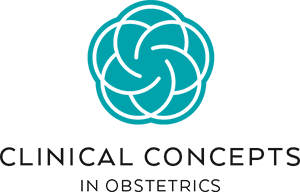For many women, pregnancy involves focusing on health and wellness and doing everything in her power to bring a healthy child into the world. But being pregnant also unmasks countless anxieties. Will my baby be healthy? Will I have a complication like high blood pressure, or diabetes? Will I need a cesarean section? Will I be able to have the birth experience I envision?
Is my stress and anxiety harmful to my pregnancy? The list of anxieties goes on and on. As a Maternal Fetal Medicine Specialist practicing for over 20 years, I have focused my entire career caring only for high risk pregnant women. In that time, I have listened to, empathized with, educated and comforted countless women as they worried about threats to their pregnancies – some real and some imagined (but no less valid).
I always say to my patients: “pregnant women are hard wired to worry about their pregnancy. I will never tell you not to worry. I will tell you what we know and strategies to deal with the concerns”. As stresses and worries go, the pandemic we are experiencing now with the novel coronavirus, COVID-19, is about as bad as most of us can imagine, particularly for pregnant women and their families. Historically, other viruses including influenza, H1N1, and other SARS viruses cause very high rates of maternal and fetal complications in pregnancy. In fact, for many viruses, especially influenza, pregnant women are considered a very vulnerable group due to the normal immune suppression that occurs during pregnancy. This makes them higher risk for developing severe respiratory complications.
COVID-19 is a new strain of a coronavirus that is similar to Middle East respiratory syndrome coronavirus (MERS-CoV) and severe acute respiratory syndrome coronavirus (SARS-CoV). These viruses are spread primarily from coughing and sneezing or direct contact. Patients infected with any one of these three strains of coronavirus may have no symptoms at all or may have relatively mild symptoms such as fever, cough and fatigue. However, some will develop severe forms of the disease which lead to pneumonia and respiratory failure requiring oxygen or breathing machine support. Pregnant women infected with MERS-CoV or SARS-CoV are at very high risk for developing severe pneumonia and other complications, including death.
Fortunately, while still very limited, the available evidence about COVID-19 in pregnant women is reassuring, especially given what we know about MERS-CoV or SARS-CoV infections in pregnancy. It is important to understand that we currently do not know how many people will become infected with the virus and develop no, mild or severe symptoms. This means that most of the information we have is based on reports of the sickest patients or those that were believed to be at high risk for having infection with COVID-19. In that setting, we will learn more about the worst outcomes before we learn about milder cases. It is also important to distinguish between being infected with the virus and having pneumonia related to COVID-19 infection. Patients with COVID-19 pneumonia are critically ill and at highest risk for death.
Any person with underlying medical conditions such as diabetes, heart disease, receiving immunosuppressive medications, chronic lung disease, and/or chronic kidney disease are at increased risk of severe complications.
The information about pregnant women and COVID-19 is currently very limited.
Here is what we know so far about COVID-19 in pregnancy:
- There is no evidence that pregnant women are more likely to get infected with COVID-19 than nonpregnant people
- Pregnant women with COVID-19 infection have similar initial symptoms to nonpregnant people – mostly cough and fever
- Pregnant women do not appear to be more likely to develop severe pneumonia
- COVID-19 and other similar coronaviruses have never been documented to cross the placenta and infect the unborn baby
- COVID-19 does not appear to cause direct harm to an unborn baby, but may lead to early delivery, especially if the mom gets very ill
- COVID-19 does not appear to be in breastmilk of infected mothers
Guidelines for who should be tested for COVID-19 and how to take care of patients known to be infected does not change because you are pregnant. Currently, the CDC recommends testing for:
- Hospitalized patients who have signs and symptoms compatible with COVID-19
- People with symptoms of COVID-19 with chronic medical conditions and/or an immunocompromised state that may put them at higher risk for poor outcomes, such as diabetes, heart disease, receiving immunosuppressive medications, chronic lung disease, and chronic kidney disease.
- Anyone who had close contact with a suspected or confirmed COVID-19 patient, or who have a history of travel from affected geographic areas within 14 days of their symptom onset.
If you are pregnant and have been diagnosed with COVID-19, you may be managed at home unless medical complications develop that require hospital admission. Your doctor will determine whether you need to be hospitalized. If you have to go to the hospital, call ahead if possible, to let them know you are coming and are infected with COVID-19, so they can prepare and protect others from getting infected.
Going to a hospital to deliver your baby during a pandemic can be a scary thought. Here are some of the things hospitals are doing to protect you and your baby (and hospital staff) while you are in the hospital to deliver:
- Rescheduling or cancelling unnecessary surgeries. This means more resources to care for patients infected with COVID-19.
- Moving as many procedures and visits out of the hospital setting and into outpatient facilities
- Visitors may be checked for symptoms of possible COVID-19 infection
- Evaluating possible COVID-19 patients in a separate area
- Separating known or suspected COVID-19 patients from other patients and limiting their visitors
- Identifying dedicated staff to care for COVID-19 patients. This limits the number of staff that are exposed to these patients.
- Nurses, doctors and hospital workers may be checked for symptoms of possible COVID-19 infection when they come to work
- Nurses, doctors and hospital workers stay home if they are ill
If you have to deliver your baby while suspected or known to be infected with COVID-19, the CDC recommends you be isolated and separated from your baby until you recover to avoid infecting the newborn. Breastmilk can still be pumped and provided to the baby, as the virus has not been shown to be present in breastmilk of infected mothers.
Of course, the best way to prevent infection with COVID-19 while pregnant is to decrease the chance of being exposed to the virus. This means following these key steps:
- Clean your hands often
- Avoid touching your face
- Avoid close contact with people, especially anyone who is ill
- Clean surfaces frequently – don’t forget your phone, computer, doorknobs and light switches
In an effort to help pregnant women avoid coming in contact with others, your doctor or midwife should offer visits by telephone or video conference (telemedicine). Ultrasounds and tests to evaluate the baby such as nonstress tests, are important but should be accomplished in as few visits to the office as possible. Talk with your doctor or midwife to discuss how to minimize exposures while still making sure the needs of you and your baby are being met.
So, for now, pregnant women can be somewhat comforted that the information on COVID-19 in pregnancy is reassuring. However, it is important to stay up to date with information provided by the CDC, as we are learning more about this virus every day.
Stephanie Martin, DO
Maternal Fetal Medicine Specialist
Co-owner and Medical Director,
stephaniemartin@clinicalconceptsinobstetrics.com
References:
www.cdc.gov
American College of Obstetricians and Gynecologists Practice Advisory: Novel Coronavirus 2019 (COVID-19), March 13, 2020 (www.acog.org)
Boelig RC, Saccone G, Bellussi F, Berghella V. MFM Guidance for COVID-19. American Journal of Obstetrics & Gynecology MFM (2020), doi: https://doi.org/10.1016/ j.ajogmf.2020.100106.


